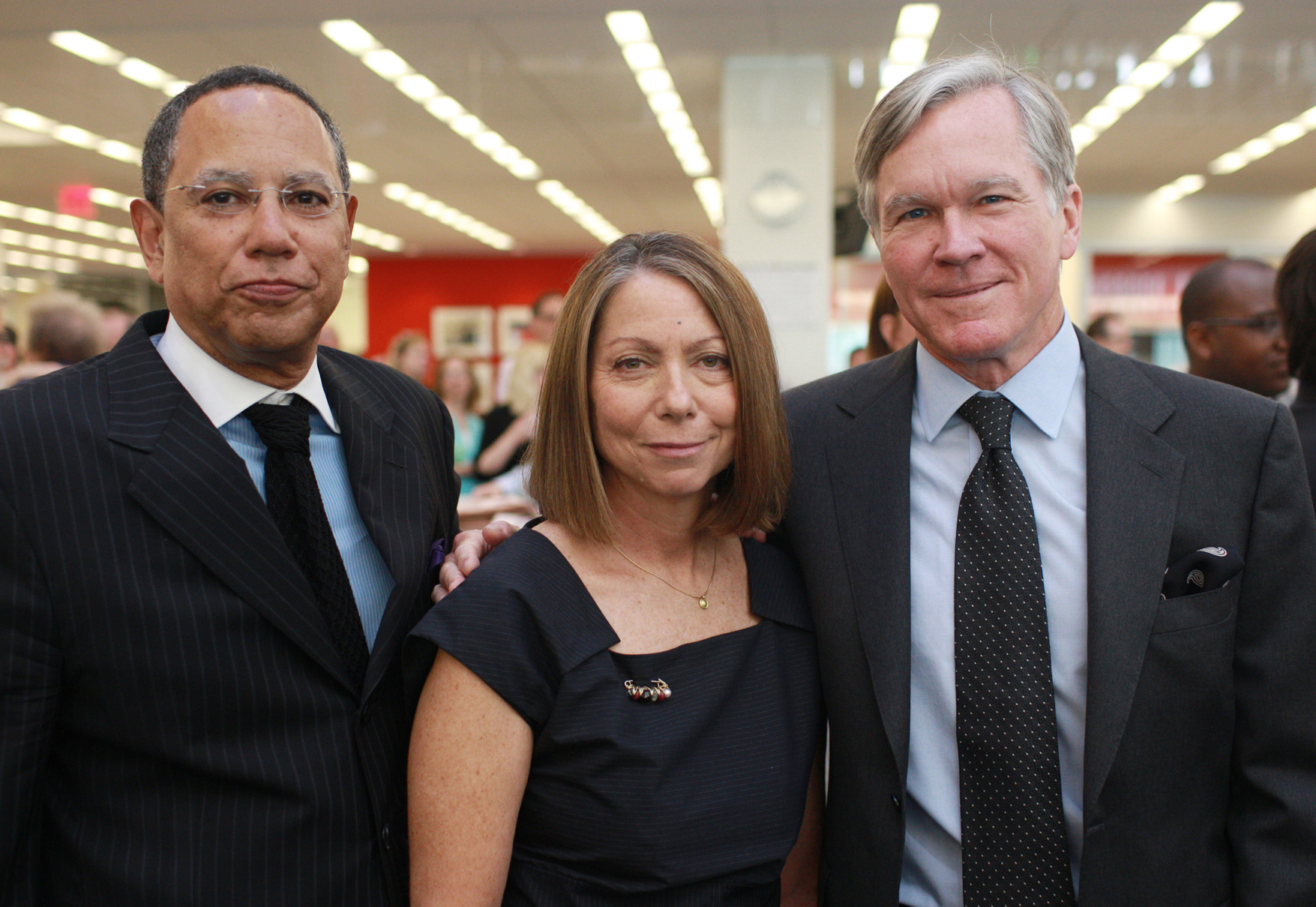
The New York Times is in the eye of the hurricane in the storm over the different treatment of women in the workplace compared to male counterparts.
The Times fired its editor, Jill Abramson, today, replacing the first woman to hold the job with the first African American to have it.
Why? The New Yorker’s Ken Auletta says it’s because she found out and she was being paid less than her predecessor, Bill Keller.
Several weeks ago, I’m told, Abramson discovered that her pay and her pension benefits as both executive editor and, before that, as managing editor were considerably less than the pay and pension benefits of Bill Keller, the male editor whom she replaced in both jobs. “She confronted the top brass,” one close associate said, and this may have fed into the management’s narrative that she was “pushy,” a characterization that, for many, has an inescapably gendered aspect. Sulzberger is known to believe that the Times, as a financially beleaguered newspaper, needed to retreat on some of its generous pay and pension benefits; Abramson had also been at the Times for far fewer years than Keller, having spent much of her career at the Wall Street Journal, accounting for some of the pension disparity. (I was also told by another friend of hers that the pay gap with Keller has since been closed.) But, to women at an institution that was once sued by its female employees for discriminatory practices, the question brings up ugly memories. Whether Abramson was right or wrong, both sides were left unhappy. Update: A third associate told me, “She found out that a former deputy managing editor”—a man—”made more money than she did” while she was managing editor. “She had a lawyer make polite inquiries about the pay and pension disparities, which set them off.”
What else besides pay? Many will recognize the adjective Auletta used in describing Abramson.
“her sometimes brusque manner”
In fact, in an earlier profile of Abramson, Auletta referred to her as “curt,” “short,” “blunt,” “intimidating,” “brusque” and “forbidding.”
Forbes uses these adjectives in its story of the firing:
stubborn, condescending, difficult to please and rude to underlings.
Abramson was rated the 19th most powerful woman in the world by Forbes.
No doubt, there’s more to the story and gossip to tell, but it should reignite the “lean in” debate started when Sheryl Sandberg, the chief operating officer of Facebook, first published her essay claiming that when women lead, they’re called “bossy.” When men lead, they’re called “leaders.”
